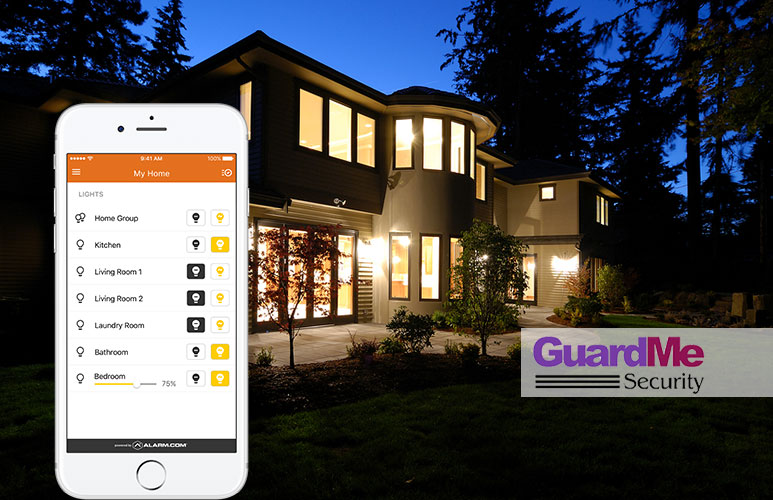Bet You Didn’t Know, Smart Lighting Affects Your Health

Think you know all the benefits of home automation? Think again. If you have home automation, you know just how much safety, efficiency, and savings it adds to our daily lives. The problem is, we have grown so accustomed to the conveniences of smart home technologies that we hardly give them a second thought. Fortunately, researchers are giving the many facets of home automation some serious thought and studies are uncovering some fascinating information in how smart lighting affects your health.
Smart Lighting and Wellness
Wellness is actively pursuing good health, and what better tool than home automation to help in that pursuit? One home automation tool in particular is getting a lot of attention, smart lighting. The ability to control your lighting has a huge impact on your health, studies show. Our bodies need light, and the need is pretty specific. We need certain kinds of light, for certain durations and at certain times. Disturbances in that negatively impact our health. According to compelling research published in the Journal of Clinical Endocrinology and Metabolism, too much of certain kinds of lighting, and light exposure at the wrong time can increase the risk of type 2 diabetes, high blood pressure, and cancer. The amount of light we receive also plays a role in our emotional health and memory.
6 Ways Smart Lighting Benefits Your Health
From fluorescent lighting to computer screens our lives are saturated in light, and much of it in unhealthy quantities at inopportune times. All of that light impacts the brain and our Circadian Rhythm, a biological process that regulates sleep and hormones responsible for good health. Smart lighting can be beneficial to our long-term health because it provides a way to control and regulate lighting. Here are some ways smart lighting affects your health.
- Reduces Night-time Injuries-– Of 700,000 hospitalizations due to fall, 20% happen in low light. Smart lighting helps reduce injuries and the costs associated with them, by providing a way to turn lights on before even moving. Smart lighting connected to motion sensors within your home automation system can also light your way.
- Circadian Rhythm Support– The Circadian Rhythm is a sensitive process experienced by living things. If disrupted, it causes problems such as sleep disruptions which further impact health. Light at the proper times helps support this process.
- Improved Sleep Patterns— Getting the proper light, and limiting light exposure during the wrong times results in a better quality sleep which helps improve concentration, memory, and mood.
- Improved Cortisol Production-– When we wake up to the morning light it improves the production of cortisol, a chemical produced by the body responsible for mental alertness. Using smart lighting to simulate dawn increases the production of this chemical.
- Decreased Health Risks–Getting the wrong kind of light, too much light at the wrong times, or not getting enough light suppresses melatonin. Many studies link melatonin suppression with an increased risk of cancer, depression, high blood pressure, and type 2 diabetes. Smart lighting allows you to control your lighting input so that it’s lights out for “static lighting” and regulate the times and kinds of light you receive throughout the day.
- Improved Mental Wellbeing— Lighting has a huge impact on mental health. Using smart home lighting can improve the lighting environment to help fight depression, Seasonal Affective Disorder, and anxiety.
GuardMe Security is a family owned single source electronic security provider with over 20 years experience. Contact us today for a free home automation assessment.
- Who’s on the Front Porch When You’re Not There? - April 30, 2020
- When Summer Starts Early, Home Security Can Help - April 30, 2020
- Home Security in a Time of Social Distancing - April 13, 2020
